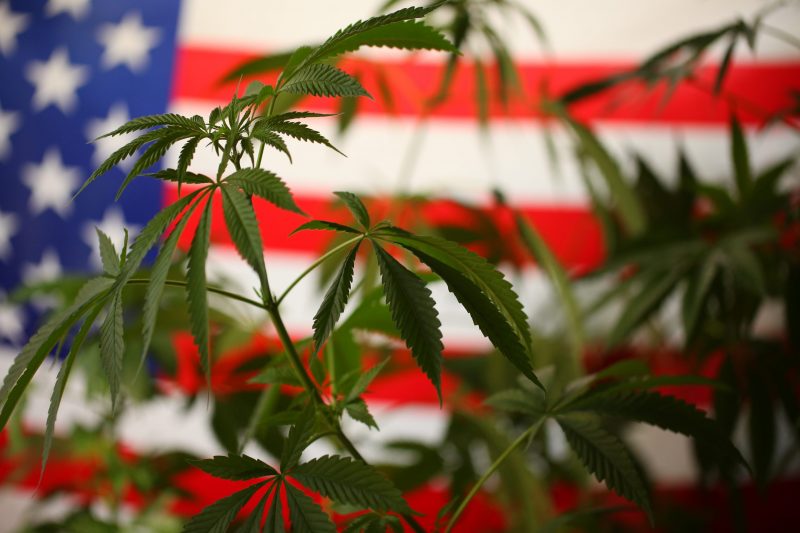Features
Weed in the USA
Published on April 23, 2020 by David Wylie

Many of us are shaking our heads at images of Americans protesting in the streets to open up the country in the middle of a pandemic.
For people who loves their freedom so much, it’s surprising they haven’t pushed for the right to grow and smoke pot without getting thrown in jail. In fact, keeping cannabis on the wrong side of the law is to the country’s fiscal detriment.
Tax it and prosper
Legalizing cannabis across the U.S. would be a major financial boon for the country. Analysts from Cowen & Co. estimate the U.S. cannabis market is worth about $56 billion — and about 90% of sales are going untaxed in the illegal market.
For those states lucky enough to have legal markets, retail stores are in a major slump. After seeing strong sales at the start of the shutdown — similar to Canada where consumers stocked up at the start of isolation — stores are now struggling without tourists flashing their debit and credit cards.
The major disconnect between the legal states and a federal government that still considers the whole industry as illegal means legal cannabis companies, declared in some areas as an essential service in the pandemic, can’t access any federal aid.
Cannabis sales in Colorado have reportedly tumbled more than 20 per cent compared to a year ago, and in Nevada they’ve dropped about 15 per cent. Analysts expect sales to get even worse before they get better, especially with U.S. unemployment claims hitting about 26.5 million.
Pandemic and prohibition
It seems counterintuitive, but COVID-19 may end up being a catalyst for federal legalization.
The chairman of Curaleaf, a major U.S. cannabis company, said there happens to be a precedent-setting event.
Boris Jordan told CNBC that right after the Great Depression, the U.S. government put a priority on tax revenue generation.
“They lifted prohibition on alcohol and therefore started to tax it – and it became a major revenue generator for both the federal and the local governments around the country,” he said.
Jordan said post-COVID-19, governments will again be looking for ways to generate revenue. And cannabis “is a significant revenue generator” that is largely untapped in the U.S.
2020 U.S. election
There is of course a major barrier to federal legalization across the border — politicians.
Still, if there’s one thing that can make a staunch politician more pliable it’s an election year. With the U.S. set to vote on Nov. 3, cannabis is likely to be a key issue.
There have been rumblings that President Donald Trump is considering making federal legalization one of his pet election issues.
On the other side of the spectrum, Democrats have selected one of their least cannabis friendly candidates as the presumptive nominee: former vice president Joe Biden.
He’s spent much of his political career as a general in the war on drugs, insisting that cannabis is a gateway drug. In 2010, he told ABC News “it would be a mistake to legalize.”
Now with an election looming and Bernie Sanders having a large chunk of support within the party, Biden has softened his stance. While he continues to oppose legalization, Biden said he does support more modest reforms such as decriminalizing possession, expunging past records, allowing medical cannabis and letting states set their own laws without federal interference.
What is clear right now is that laws across the U.S. are a hazy unfair patchwork — in some states, people are incarcerated for selling weed, and in others, people are getting rich off it.
For it to truly be “the land of the free,” that has to change.
Leave a comment on our Facebook page.
© Copyright 2020 Okanagan Z. | About the oz.
Report a Typo or Inaccuracy
We strive to avoid typos and inaccuracies. However, on occasion we make mistakes. We value your contributions and help in correcting them.